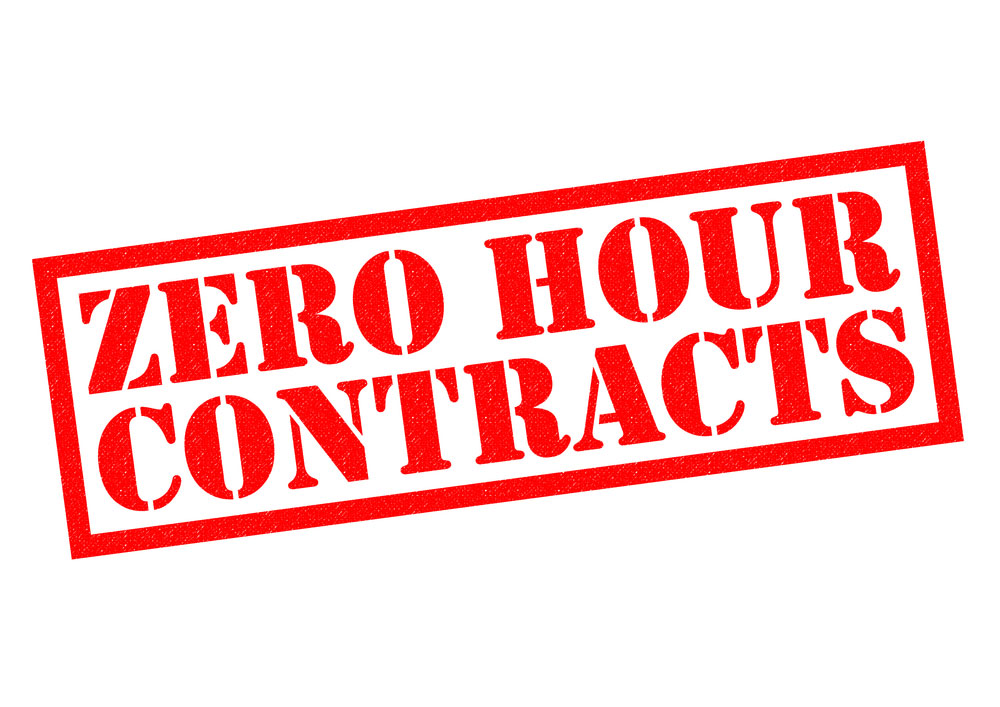
Zero hour contracts have been around for many years, but have recently gained notoriety in the media. There is a lot of controversy surrounding zero hour contracts, and – depending on what you read – it can be difficult to know what the advantages and disadvantages are. This post from Mr Lender aims to explain just what a zero hour contract is, how they work, and how you can get by on one.

What are zero hour contracts?
A zero hour contract is often defined as a type of employment where the employer is under no obligation to provide a set number of hours, and a worker is under no obligation to accept any work they’re offered. The types of jobs offered on zero hour contracts varies greatly, but often includes restaurant and hotel work, as well as translating and tutoring jobs. Workers on a zero hour contract are often used to cover spare shifts or to step in if a permanent member of staff goes off sick or on maternity.
Zero hour contracts also mean employers hire ‘workers’ and not employees. The employment status of the worker is often defined by the relationship they have with the employer, and the nature of their job. If, for example, a worker is punished in some way for not accepting the hours they’re offered, or they’re subjected to disciplinary procedures, this could mean they are considered an employee, and not a worker.
Are zero hour contracts legal?
While zero hour contracts are legal, there are a number of things to still consider. Staff on zero hour contracts are still entitled to statutory annual leave, and they should still be paid at least the National Minimum Wage.
An employer also cannot prevent a worker on a zero hour contract from working elsewhere. There was in fact a law brought into action in May 2015, which states a worker on a zero hour contract is allowed to ignore any exclusivity clauses which ban them from looking for work or accepting work elsewhere.

The advantages and disadvantages of a zero hour contract
There are a number of benefits when it comes to zero hour contracts – for both the employer and worker. The main benefits to the employer are that it is often cheaper to hire workers on zero hour contracts than it is to hire someone temporarily via an agency. The other benefit is that the employer is under no obligation to provide a continuous number of hours as they would with an employee.
As mentioned previously, there are a number of benefits for the worker too when on a zero hour contract. The most notable benefit is it provides a flexible approach to work which may be something of interest to someone who is already in employment but has the zero hour contract job on the side, or maybe even a single parent who needs to balance work with their home life. It is also a great way to gain work experience and skills from within the workplace.
Facts and stats about zero hour contracts
According to FullFact.org, around 905,000 people are on a zero hour contract, 33% of which are aged 16-24. Out of the 905,000 people employed on a zero hour contract, just fewer than 300,000 of them say they want more hours. A further 163,000 people on a zero hour contract were in full time education.
How to manage on a zero hour contract
While there are a number of benefits to working on a zero hour contract, the obvious drawback is you cannot guarantee how many hours you’re going to be working from one week to the next – if at all. However, since the law was introduced in 2015 to outlaw the exclusivity clause used by employers, it’s now possible for workers to have more than one job at once. This means you can still be earning money elsewhere while on a zero hour contract. You can also make money at home using YouTube, Instagram and eBay to name a few.
